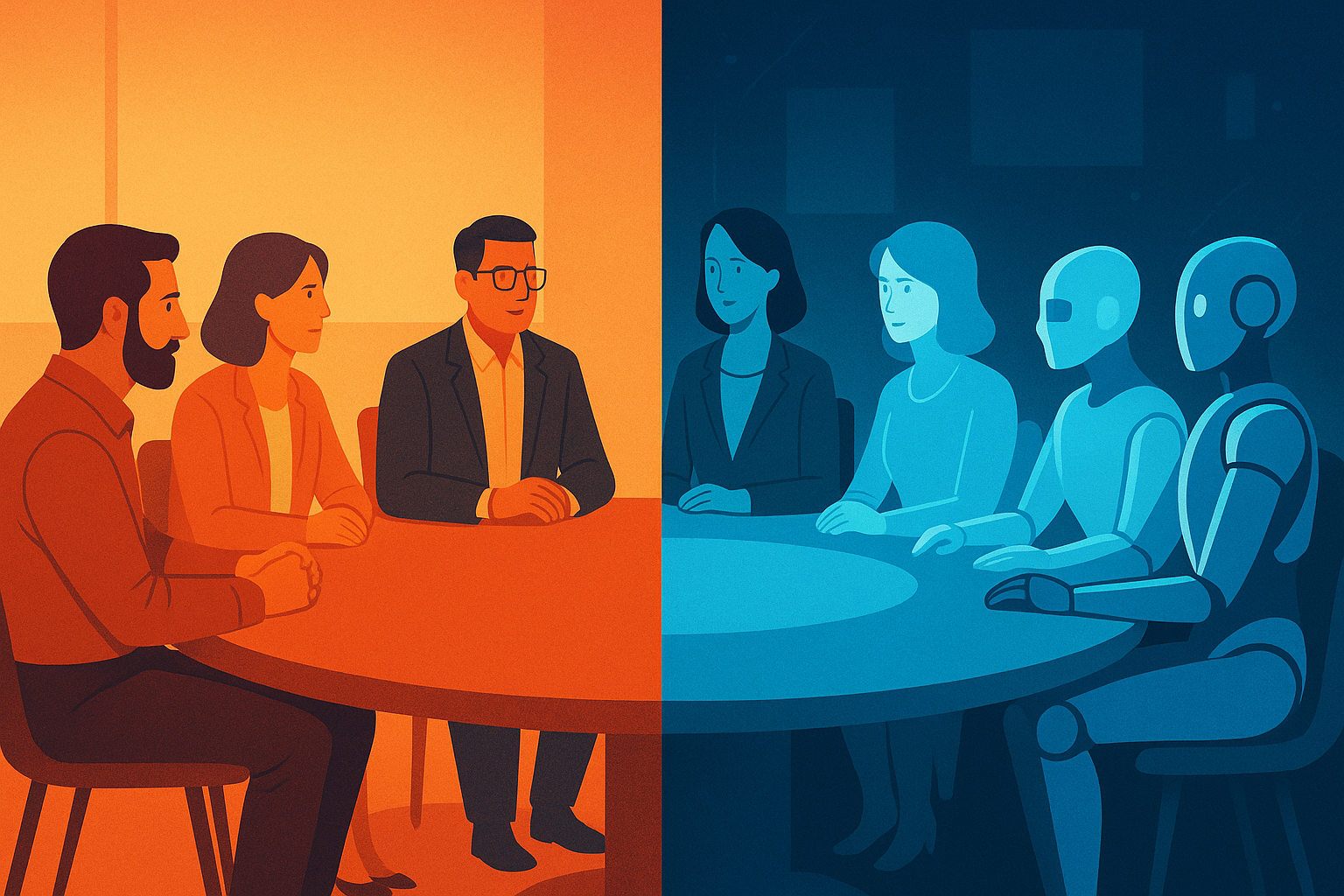AI is already in the room taking notes, but soon it will have a seat at the table. As AI shifts from passive recorder to active participant, meetings will evolve, becoming more efficient, purposeful, and distinctly human.

Last year I wrote the article ”AI Is Giving Us the Worst Game of Telephone Ever” as I described the inevitable trend of AI-in-loop writing-receiving-replying email threads. Taken along with what I wrote in ”The Implications of the MIT Research Paper ‘Your Brain on ChatGPT’ at Work” it seems like we’re on the road to how hospitals work in the movie Idiocracy, where humans are nothing more than dumb button pushers in a Chinese Room (see “The Chinese Room” by John Searle, a link to an excerpt of the concept in Minds, Brains, and Programs can be found here).
In a recent meeting I showed up and there were more AI chatbots present than people. Today they just take notes, but it’s only a matter of time before they start to be active participants. Do I need to be at the meeting if my AI chatbot can do it for me? It can just read the notes in my email, documents, and chats, and since it was probably helping with, if not outright creating my work anyway, I might as well let it speak, right? A Real Genius foresaw this trend back in 1985.
The question becomes what is the future of meetings with AI? In “Chapter 6. Management: Process” of The Career Toolkit: Essential Skills for Success That No One Taught You, I discuss how to think about meetings to make them effective. The principles still hold, but the process is perhaps going to be a little different. Decisions are still best made in person, unless you think your AI and mine working together can do a better job deciding, in which case, why do they need us?
However, the information broadcast part of meetings changes a bit. We’ve all experienced, “this meeting could have been an email.” AI can make that more often the case, especially since it can take larger sets of information and distill the more relevant parts for your role, to you. But this is not the end of meetings.
Professional speakers like me get paid a lot of money to provide wisdom and training to our audiences. In many cases, instead of paying five-figure fees your company could order a copy of the speaker’s book and have everyone invest time reading it. That’s much cheaper, so why don’t companies do it? It’s because if you tell a human to read a book, or watch a video, they tend to ascribe less value to the content than if you brought everyone into a room together for a live speaker. The content may be the same, but the perceived value and the attention paid will differ. The same is true for meetings. People generally pay more attention in meetings than to one of a hundred emails in their inbox every day.
We’ll continue to have meetings; however, I think the social aspect, the human-to-human interaction will become even more important. No doubt AI will provide us better prep and summary for the meetings. I can even imagine that someday AI actively listening in may nudge people when they start to drift off-topic, or provide other real-time guidance, such as jumping in with information and analysis that otherwise would be done post-meeting. Information sharing itself will become less important. Even some types of decision making may move from meetings to AI-space as our proxy agents negotiate decision spaces for us. Consequently, the human and emotional aspects of meetings will get elevated. What the new normal will look like will depend on company culture.
There’s also hope that meetings may become shorter and more efficient. I don’t think, however, that meetings will completely go away. So while we may all bring our “AI-tape decks” to the meeting, I think rather than having a room full of them sans people, hopefully we’ll be standing there like John Cusack, using our “AI-boom boxes” to better broadcast our message to our peers. To paraphrase Peter Gabriel, AI is a doorway to a thousand answers, the resolution to all your fruitless searches; but to really build those personal connections, remember to reach out from the inside.
It’s critical to learn about corporate culture before you accept a job offer but it can be awkward to raise such questions. Learn what to ask and how to ask it to avoid landing yourself in a bad situation.
Investing just a few hours per year will help you focus and advance in your career.
Groups with a high barrier to entry and high trust are often the most valuable groups to join.